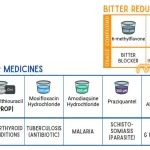Cambridge, UK — In a breakthrough study, researchers at the UK Dementia Research Institute at the University of Cambridge have identified a drug commonly used to treat glaucoma that may also help combat dementia. The study, published in Nature Chemical Biology, reveals that the drug methazolamide could prevent harmful protein build-up in the brain, offering a potential new approach to fighting neurodegenerative diseases.
Methazolamide, a carbonic anhydrase inhibitor, is currently prescribed for glaucoma, a chronic eye condition that affects millions worldwide. This drug has now shown promise in preventing the accumulation of tau proteins, which are linked to several forms of dementia, including Alzheimer’s disease. Tau proteins, when they build up in the brain, form toxic aggregates within nerve cells, a characteristic of neurodegenerative disorders known as tauopathies.
In their research, scientists utilized genetically engineered zebrafish to model tauopathies. The study involved screening over 1,400 clinically-approved drugs to identify potential candidates for clearing tau build-up. Methazolamide emerged as a strong contender, demonstrating a notable ability to reduce tau protein accumulation in the fish, as well as in mice with the P301S mutation, which is known to cause conditions such as Alzheimer’s, Pick’s disease, and progressive supranuclear palsy.
Further testing in genetically engineered mice provided compelling evidence of methazolamide’s therapeutic potential. Mice treated with the drug performed better on memory tasks and exhibited improved cognitive function when compared to untreated mice. Post-mortem analysis of the brains of these treated mice revealed a marked reduction in tau aggregates and less nerve cell loss.
“Methazolamide shows promise as a much-needed drug to help prevent the build-up of dangerous tau proteins in the brain,” said Professor Rubinsztein, one of the study’s authors. “Although we’ve only looked at its effects in zebrafish and mice, so it is still early days, we at least know about this drug’s safety profile in patients.”
The study’s findings point toward a possible future where an existing drug for an unrelated condition may offer a new line of defense against dementia. However, further research, including human clinical trials, is necessary to determine if methazolamide can effectively prevent or slow cognitive decline in humans.
This research underscores the potential of repurposing drugs with established safety profiles, opening doors to faster and potentially more cost-effective pathways for addressing untreatable neurodegenerative diseases. If successful, methazolamide could represent a crucial addition to the limited treatments available for dementia, bringing new hope to millions impacted by these devastating conditions.










